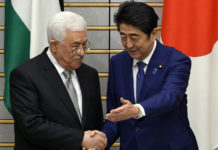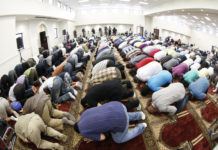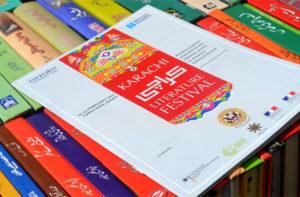Urdu language in India has been caught in the communal politics of the country. It is being called as a language of Muslims and a large section of the non-Muslim speakers have drifted away from Urdu. In fact, Persian and Turkish were the main languages which Muslim ruling class coming from other countries in medieval times brought. Urdu developed as a language due to mixing up different languages and dialects in the country over the centuries and became a language of masses for communication in large part of northern and the Deccan region of the country.
Many argue that the government has not given due status to Urdu and as there is hardly any official communication in the language, and it has not got embedded in the capitalist system. The embedding in capitalist system and becoming a language of commercial activities are important to remain relevant and survive in this market dominated society. It is a fact, only the lower and lower middle class Muslims are educating their children in Urdu while the upper middle and the higher classes are shifting to English. Given the socio-economic marginality of Muslims in country, this raises many disturbing questions. Many contend that for their development Muslims need to adopt a language and script which has the dominance in the Market and/or is a recognised state language, while others argue that Urdu is a language in which Muslim religious discourses and the best of Muslim culture or Ganga-Jamuni Tehzeeb of India (syncretic culture) are embedded and as such this language need to be preserved and adopted by the Muslims and all.
Urdu is not a regional language of India but its speakers are spread across the country and more specifically in northern and Deccan regions. The language is being spoken by a sizeable number of people from Kashmir to West Bengal and upto Karnataka. However, only in Kashmir it is a first official state language, and in Uttar Pradesh, Bihar, Delhi, West Bengal, Andhra Pradesh it has got second language status. In fact, in Jammu and Kashmir, Urdu got official language status more due to political reasons, not on the basis of the number of speakers of the Urdu language. Many argue that regional languages are more prevalent among people in the state than Urdu. As Urdu speakers do not form the majority speakers in any state, it has also been a language without state apparatus to support it. The north and Deccan regions of the country which was the birth place of the Urdu language has largely succumbed to the communal politics and states in these regions have abandoned the promotion and use of the language in official communications.
Partition of the country affected Urdu in very adverse ways. After partition, Urdu got divided into three nation states India, Pakistan and Bangladesh. Urdu speakers in Bangladesh became refugees while those migrated to Pakistan remain Muhajirs. Though, Urdu has become national language of Pakistan it faces the same consequences at the regional level in Pakistan as Hindi in south India. In India, it also suffered a setback. It wrongly got perceived that it is associated with Muslims and is a language of foreigners leading to adverse state and social favour to it.
In India, Urdu has been a victim of both the market and the State. It is a language of love, living together and expression of emotion, which have largely lost value in today’s fast changing and commoditized lives. The State has not encouraged official communications in Nastaliq (Perso-Arabic) and Urdu is uncared for in educational institutions while the Market has preference for English, Hindi or regional languages.
This is unfortunate that the support to Urdu language by the state has often been linked to the support to Muslims. It has only received tokenism or what Jeffery (1997) calls ‘moth-eaten’ patronage. The supports to the language have often been with a goal of keeping Muslims happy for their votes. But this is not the kind of support which can sustain or embed a language into capitalism. Both English and Urdu are sometimes portrayed as the language of conquerors or traitors. But where English is considered to be the language of wealthy, Urdu is now regarded as primary language of the poor, particularly of poor Muslims.
Many claim that Muslims committed mistake in owning the language. This not only compromised their development and adaptation of English and other official languages but help the right wing politics in India, which targeted Muslims and linked Urdu with two nation theory.
The campaigns for the promotion of Urdu has often created adverse relationship between Muslim community and political leadership at large in the country. The north India was already communalised during national movement for freedom and the campaigns have also adversely affected the Hindu-Muslim relations in south India. Campaign for Urdu outside north India created two adverse consequences. First, separated Muslims from non-Muslims. Second, governments helping the cause of Urdu were blamed to be favouring Muslims by Hindu communal groups. Thus, while working for the cause of Urdu, Muslims lost on both the fronts. First, they could not help Urdu and gave an impression that Urdu is a language of Muslims. Second, the society got more communalised. Muslims face consequences of it in the form of discrimination, communal violence and alienation.
In fact, for the sake of preserving Sanskrit, Urdu was sacrificed under three language formula in northern states. Hindi was brought as mother tongue, English as one modern language and Sanskrit, as language of ancient India. In northern India where Muslims were Urdu speakers, Census staff noted Hindi as their mother tongue without consulting them. Urdu, the language of modern and medieval India, was thus left without any meaningful space in education system. Most of the southern Indian states, such as Tamil Nadu, adopted two-language formula, in which regional language and English were given space but Hindi was left out. The neglect of Hindi as sister language of Urdu also adversely affected the prospect of Urdu in these states.
It is important that state and Central governments recognise that Urdu is a language of the country and is a carrier of its glorious culture and history and not a language of Muslims. Muslims should also realise this and should not exert religious identity for the language which is of secular origin. More the Muslim assert for its promotion, the possibility is that more Urdu will be marginalised by the communal politics. There is also a need that Urdu adopts other scripts as well for its growth and spread. A sizeable proportion of Indian masses who speak and love the language cannot read it in Perso-Arabic script. The state support to the language is essential for its survival. To remain relevant and widely used.
Many claim that this may be the last generation of Urdu speakers in many parts of the country. In some states, it may go on for one or two generations more before the poor Muslims also realise that it is not economically rewarding to educate their children in Urdu schools. That may be final stage of the end of a glorious culture and history that Urdu created in India.
[This post is authored by Dr. Abdul Shaban is Professor and Deputy Director at Tata Institute of Social Sciences, Tuljapur. He can be reached at Shaban@tiss.edu. Originally published by Ummid.com, republished here with permission.]









